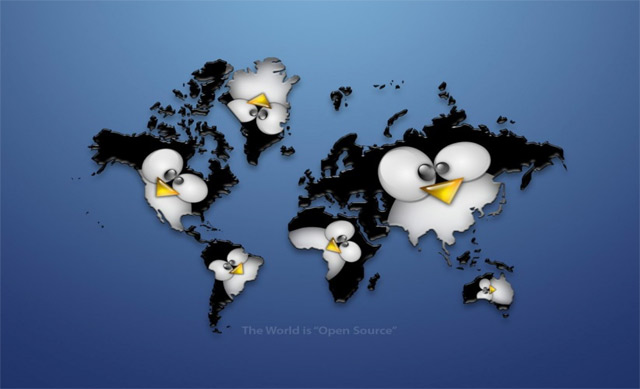Linux is everywhere. Planet Open Source

"Linux is used everywhere: from spacecraft to microwaves - everything works under Linux." Surely many have heard this and would like to know, are these just beautiful words or is it really true? The Linux Federation magazine proves that this is true: he published a large review with a list of places where Linux works. The list is really impressive.
State
Most countries around the world work under Linux. There are two main reasons for this: budget savings and flexibility that no other operating system has anymore.
The US Department of Defense is the largest user of Red Hat Linux in the world in terms of the number of computers. Nuclear submarines and the newly built destroyer of a new generation with an onboard data center are working on a free OS.
')
The US nuclear security administration owns the tenth power IBM Roadrunner supercomputer in the world, which is experiencing virtual nuclear weapons under the Fedora operating system.
The German government has transferred tens of thousands of workstations to Debian and OpenSuse.
The French National Police (90,000 computers) decided in 2007 to upgrade from Windows XP to Ubuntu. The process should end by 2015. The French Parliament has already moved to Ubuntu, and for some reason the Minister of Agriculture of the country prefers Mandriva.
Russia has a plan to transfer all federal executive bodies and federal budget institutions to the use of free software until 2015.
Education
As Nelson Mandela said, education is the most powerful weapon for changing the world. Free software should be the foundation of the education system, and in some countries this is already understood. Chinese authorities purchased 150,000 Linux computers for provincial schools. The Ministry of Education of Russia announced the installation of Linux on all school computers back in October 2007.
In Germany, 5.6 million students in 33 universities also transferred to a free platform.
Commercial companies and non-profit organizations
In many companies, Linux is used as a standard platform for employees' work computers. There are special “commercial” distributions on the market: Red Hat Enterprise Linux, SUSE Linux Enterprise Desktop, and Ubuntu, with which you can order paid technical support.
Amazon has a Linux system installed on every corporate computer.
Google has developed its own version of Goobuntu , which is kept secret from the outside world.
Wikipedia in 2008 switched to Ubuntu from Red Hat Enterprise and Fedora.
IBM is making a major contribution to the development of the Linux kernel and uses a free OS on both work computers and servers. A few years ago, IBM launched the television commercial “IBM Supports 100% of Linux”.
Linux operates on the NYSE and LSE stock exchanges, in banks and brokerage companies.
Scientific organizations
A few years ago, the International Space Station computers switched from Windows XP to Debian 6.
Many universities and research organizations use the special Scientific Linux distribution , developed by Fermilab and CERN. Naturally, the same CERN all software writes under Linux, including programs for managing the Large Hadron Collider. All 20,000 CERN internal servers run under Linux.
To all of the above, add billions of mobile devices with a built-in Linux kernel: smartphones, tablets, routers, set-top boxes and smart TVs, industrial equipment. At the end of 2013, we can say: Linux is really used everywhere.
Source: https://habr.com/ru/post/207732/
All Articles